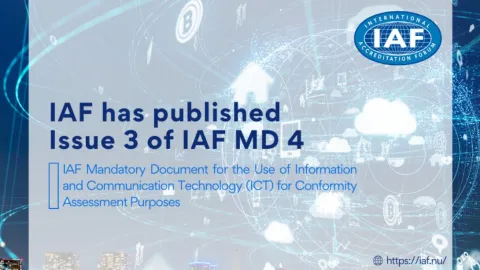News European Union
Please note that you have to be a registered member with paid membership in order to see full articles.
Become a MemberSelected News

Cofrac Opens Renewal Process for Certification Committee Members
The French Accreditation Committee, Cofrac, has started the renewal process for its Certification Section Committee, with current member mandates ending in December 2025.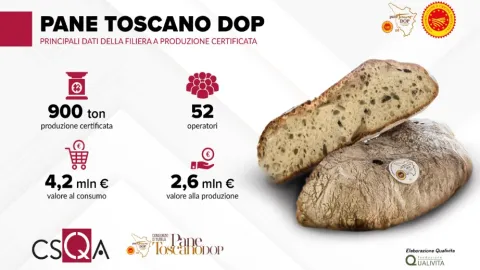
PDO Tuscan Bread has a consumer market value of €4.2 million
CSQA has been reauthorized by Italy’s Ministry of Agriculture, Food Sovereignty and Forests to inspect Pane Toscano DOP (Tuscan Bread with Protected Designation of Origin) for another three years,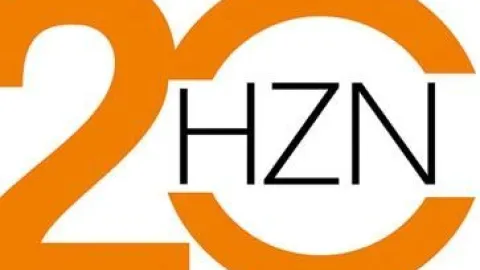
Croatian Standards Institute Celebrates 20 Years of Advancing Quality and Safety
The Croatian Standards Institute (HZN) marked its 20th anniversary on July 1, celebrating two decades of strengthening Croatia’s quality infrastructure and contributing to national and international standardization.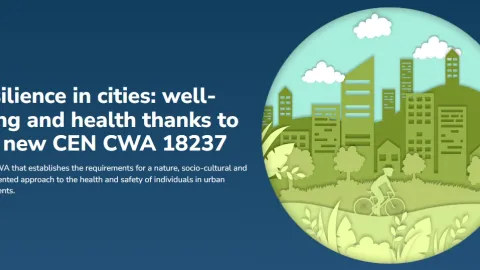
European Guide CWA 18237 Helps Cities Build Healthier, Smarter Urban Spaces
A new CEN Workshop Agreement, CWA 18237:2025, offers European cities a practical guide for improving public health and wellbeing by combining nature, culture, and digital tools in city planning.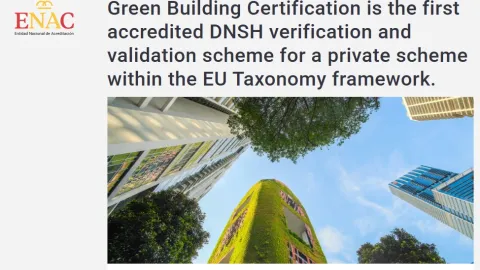
Green Building Certification Spain Gets First Accreditation for Private EU Sustainability Scheme
Green Building Certification Spain is the first organization in Spain to receive accreditation from the Entidad Nacional de Acreditación (ENAC) for verifying and validating compliance with the EU’s Do No Significant Harm (DNSH) principle under a private scheme.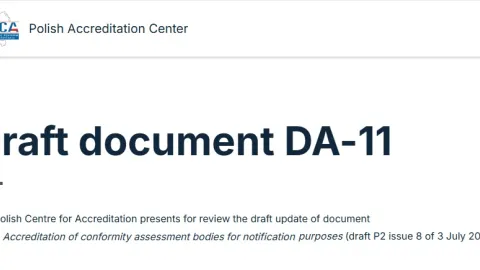
Poland Finalizes Consultation on Accreditation Rules for EU Product Assessors
The Polish Centre for Accreditation (PCA) has released a draft update to document DA-11, which outlines how conformity assessment bodies (CABs) can be accredited for assessing products under EU rules.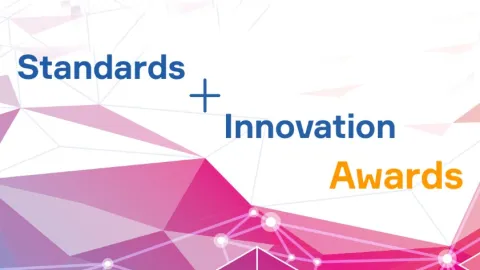
CEN and CENELEC Open Nominations for 2025 Standards+Innovation Awards
The 2025 edition of the Standards+Innovation Awards is now open for nominations, featuring five categories, including a new award for educators in standardization and the biannual award for technical body officers.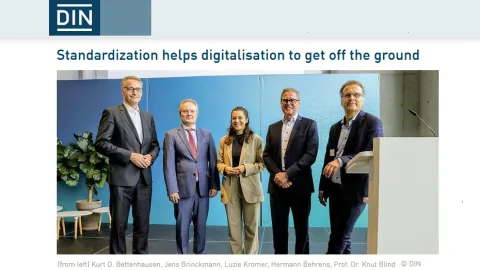
SMART Standards Seen as Key Tool for Digital Transformation, German Survey Finds
The 13th annual survey by the German Standardization Panel was presented on June 24 by the German Institute for Standardization (DIN) and the German Commission for Electrical, Electronic & Information Technologies (DKE).
Road Safety Standards Take Center Stage in Latest Issue of BDS Compass
The latest issue of BDS Compass, published by the Bulgarian Institute for Standardization (BDS),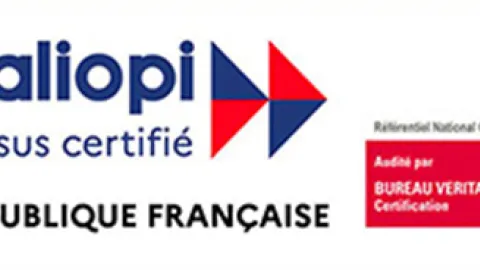
Cofrac Suspends Bureau Veritas Accreditation for Qualiopi Certification
The French Accreditation Committee (Cofrac) has suspended Bureau Veritas’ accreditation for issuing Qualiopi certifications, affecting its activities under the ISO/IEC 17065 standard.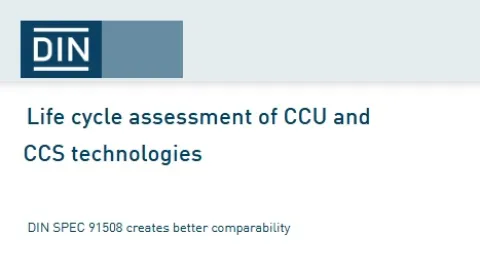
Germany Issues DIN SPEC 91508 for Choosing the Optimal Carbon Management Method
Germany has released DIN SPEC 91508, a free standard for carbon management that helps evaluate whether carbon capture and utilization (CCU) or carbon capture and storage (CCS) is the better choice in a given situation.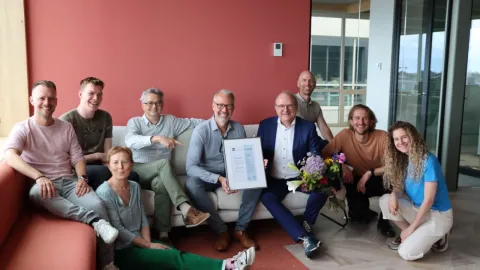
Olympus Mobility Earns ISO 27001 Certification for Data Security
Olympus Mobility, an IT services and consulting firm based in Ghent, Belgium, has achieved ISO/IEC 27001 certification following a successful audit by Brand Compliance B.V.Global News
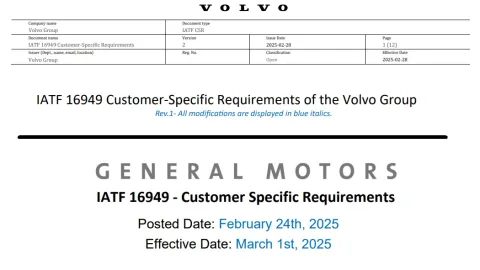
Volvo and GM Update Customer-Specific Requirements for IATF 16949
Volvo Group and General Motors have updated their customer-specific requirements (CSRs) for IATF 16949, the automotive quality management system standard.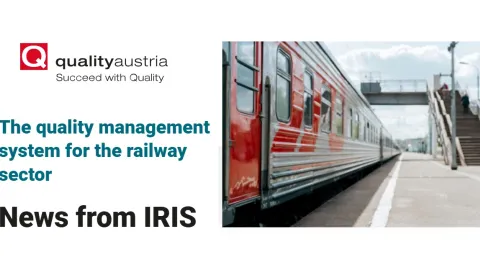
IRIS Certification News: Railway Quality Management Upgrades with Rev. 4 and Siemens Mobility’s Gold Award
The International Railway Industry Standard (IRIS) underwent significant updates with the implementation of Revision 4 in April 2024, introducing key changes to improve quality management for railway sector companies.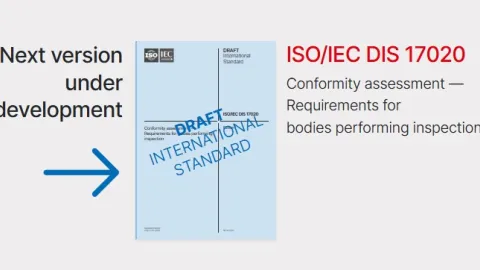
Draft Revision of ISO 17020 for Inspection Bodies Open for Voting
The ISO International Organization for Standardization Committee on Conformity Assessment (CASCO) has released a draft revision of ISO/IEC 17020, which sets competence requirements for inspection bodies.
Survey Launched to Improve ISO 59000 Circular Economy Standards
The ISO/TC 323 Technical Committee on Circular Economy has launched a survey, open from February 4 to April 4, 2025, to gather feedback on three foundational standards within its scope - ISO 59004, ISO 59010, and ISO 59020.
ETSI Creates Group to Define 6G Standards, Welcomes Expert Contributions
The European Telecommunications Standards Institute (ETSI) has launched a new working group to define the requirements for the upcoming sixth-generation (6G) mobile network.
FSC Clarifies Misconceptions Amid Illegal Timber Trade Concerns, Notably From Russia
The Forest Stewardship Council (FSC) decided to address the current misconceptions regarding its certification system, particularly in relation to illegal timber trade and supply chain transparency.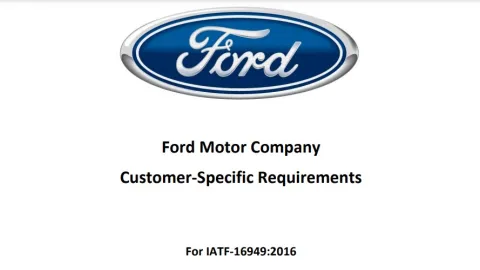
Ford Updates Customer-Specific Requirements for IATF 16949 and PPAP, Strengthening Supplier Compliance
Ford has updated its Customer-Specific Requirements (CSRs) for IATF 16949 and the Production Part Approval Process (PPAP), effective February 6, 2025.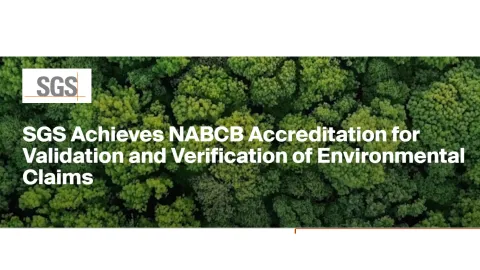
SGS Earns NABCB Accreditation for Environmental Claim Verification
SGS has received accreditation from India’s National Accreditation Board for Certification Bodies (NABCB), strengthening its ability to support clients with reliable environmental data.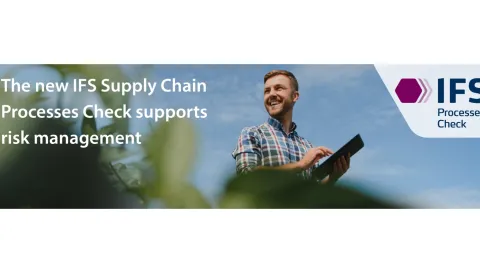
IFS Introduces Tool to Enhance Supply Chain Risk Management
IFS has launched the IFS Supply Chain Processes Check, a tool to help suppliers identify and manage risks in their supply chains.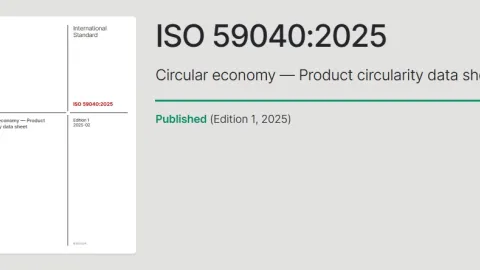
ISO 59040 Sets New Circular Economy Standard for Product Circularity Data Sheets
On February 3, 2025, the International Organization for Standardization (ISO) released ISO 59040:2025, titled Circular Economy — Product Circularity Data Sheet.
New JPEG Trust Standard Combats Deepfakes and Strengthens Media Credibility
A new standard called JPEG Trust has been introduced to help identify authentic photos and videos, aiming to combat the spread of deepfakes.